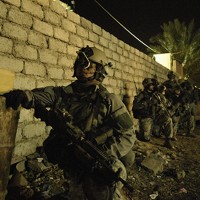In the traumatic months after the attacks of Sept. 11, the United States struggled to understand the new world it faced and to redirect its security strategy away from "rogue states" relying on conventional military power to the shadowy and ambiguous terrorist threat. Some components of the new strategy, such as augmented homeland security and increased assistance to partner states, were obvious and fell easily into place. How to use U.S. military power in an offensive way against terrorism was not so clear.
The initial reaction of the Bush administration reflected the old saw that when all one has is a hammer, every problem looks like a nail. America's hammer was a military force masterful at defeating other conventional militaries. The challenge was finding a way to apply this to terrorism. The Bush administration quickly found a solution: concluding that state sponsorship was crucial to terrorists. By fighting the armed forces of the states that sponsored terrorism, the U.S. military would be attacking terrorism itself. Thus the United States would go on the offensive by using its military to remove regimes that either openly supported terrorists, such as the Taliban in Afghanistan, or that theoretically might be inclined to do so at some future time, as in the case of Iraq. In a 15-month period, both of these regimes were destroyed by the force of American arms in quick campaigns of stunning brilliance.
Unfortunately, the eradication of Saddam Hussein and the Taliban did not have the intended strategic effect. To begin with, while removing regimes that either supported terrorism or might theoretically be inclined to do so was relatively easy, building a stable replacement willing and able to control extremism was hard and expensive. And as the monetary and blood costs of the campaigns in Iraq and Afghanistan mounted, public and congressional support declined. It became clear that such efforts could not be sustained long enough to attain a decisive outcome, even if that were possible.

